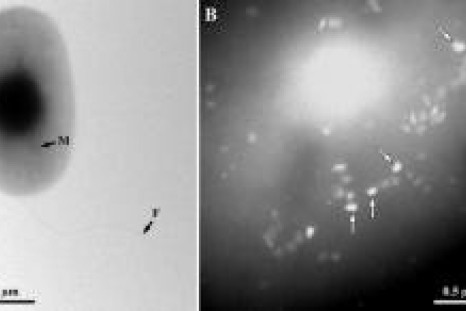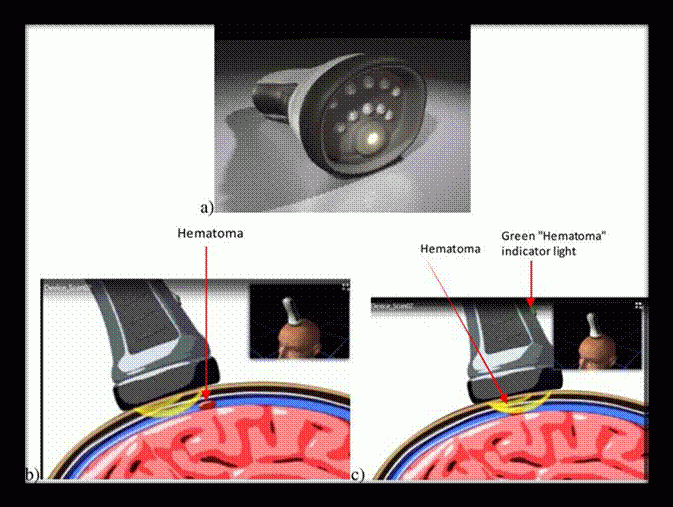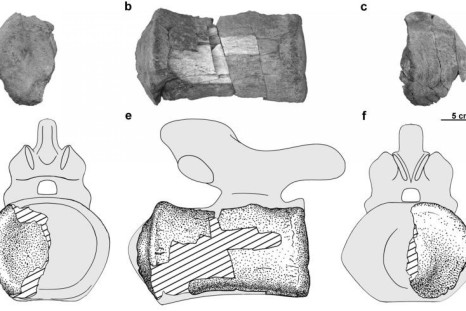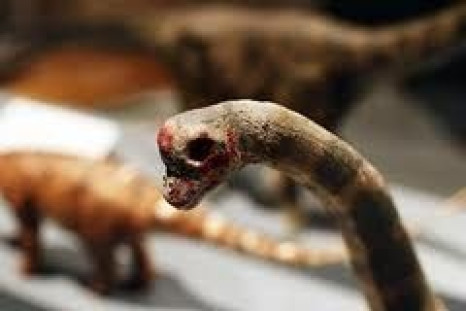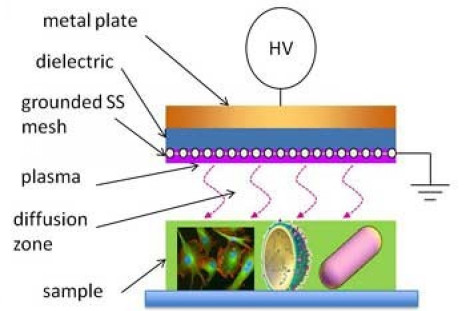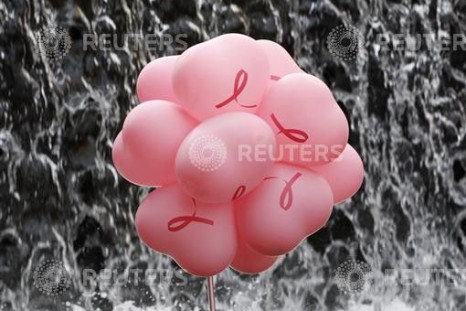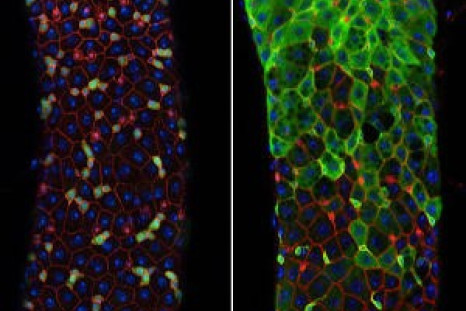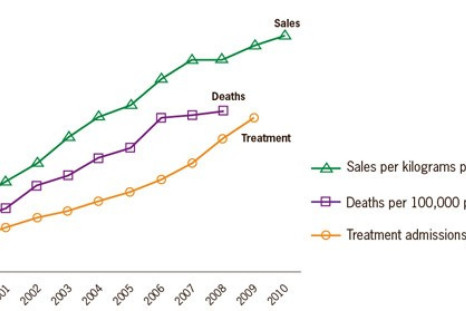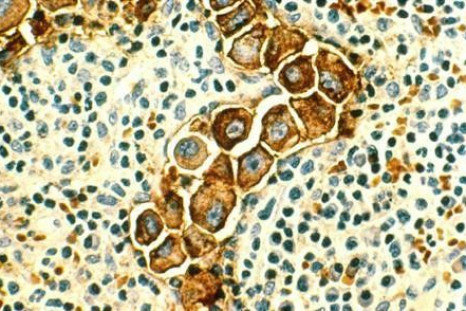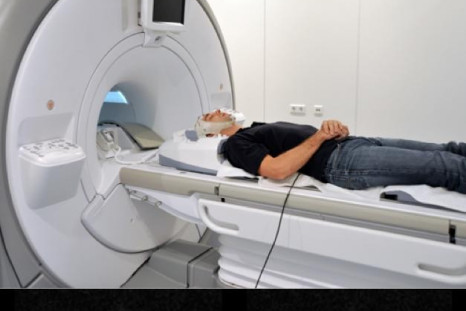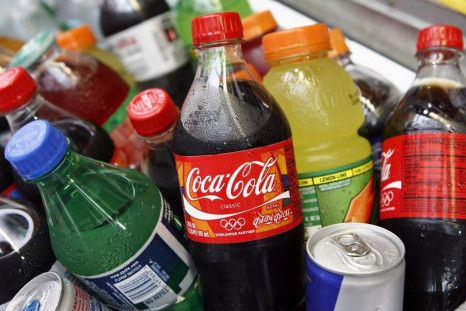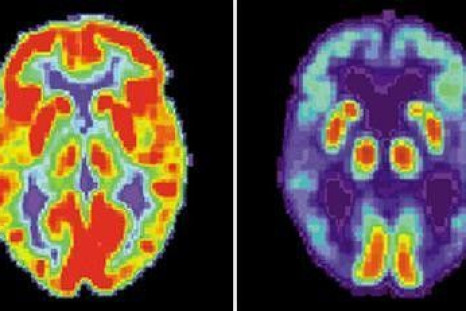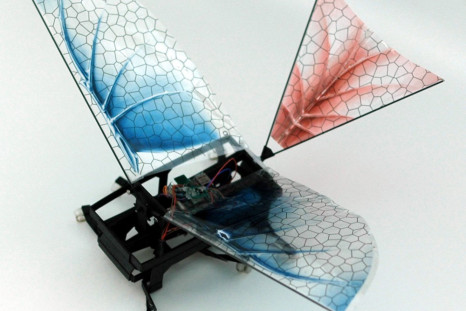Magnetic Bacteria Strain Could Pave Way for Novel Nanotech Application: Study
An international team of scientists have discovered and mined out a new type of magnetic bacteria that has the potential to pave the way for novel biotech and nanotech applications.The new discovery is likely to encourage further understanding of how bacteria can make minerals which could prove significant for advances in biotechnology and nanotechnology.
Scientists Develop Hand-Held Device for Detection of Brain Injury
The U.S. National Institute of Health has devised an innovative hand-held machine that enables the rapid detection of brain-related injuries like haematoma.
First Antarctic Plant-Eating Dinosaur Fossil Found
Researchers have for the first time identified remains of plant-eating dinosaurs in Antarctica. The Argentinean research team suggests that these large bodied sauropod dinosaur or advanced titanosaurs were widespread during the Late Cretaceous era.
Salmonella, Staphylococcus Risk in Orange Juice Served in Bars and Restaurants: Study
A new study, conducted by researchers in Spain, states that poor handling of fruits and inappropriate cleaning of juicing equipment in bars, restaurants and other catering establishments could result in food-borne illnesses.
Staying Fit Can Sustain a Long Life: Study
Fitness, the new age health prescription, has now been linked to an increased life span.
Reducing Stress and Mindful Eating Curbs Weight Gain in Obese and Pregnant Women: Study
In a new study, professionals from the University of California, San Francisco (UCSF) have urged women to be cautious of what they eat and also combat their stress levels as a proactive means to prevent them piling on the pounds during the festive season. The research, published online in the October issue of the Journal of Obesity, explained that managing stress and mindful eating can actually help in weight loss even in the absence of hardcore diet regimes.
Global Carbon Emissions Reach Record 10 Billion Tons: Study
Carbon dioxide emissions from the burning of fossil fuels reached 10 billion tonnes in 2010, the first time such an amount has ever been reached, according to an editorial Sunday.
Broiled, Grilled Fish Good for Alzheimer's: Study
A new study, presented on Nov. 30, at the annual meeting of the Radiological Society of North America (RNSA), links the consumption of fish to brain structure, while focusing on the risk of contracting Alzheimer's.
Hollow Bones in Long-Necked Dinosaurs Linked to Survival of the Species
Research into the rapetosaurus, a long-necked dinosaur, has revealed new knowledge about its behaviour and living habits, particularly their survival in a harsh, drought-prone environment.
Pfizer Offers Deals to Keep Lipitor Users as Patent Expires
Pfizer Inc. will see the end of a hugely lucrative era on Wednesday, Nov. 30, when its two-decade old patent for Lipitor, a hugely popular drug for cholesterol management, expires.
UCLA Develops Innovative Anti-Bacterial Mouthwash to Wipe Out Tooth Decay
A new mouthwash that promises to eliminate tooth decay in our lifetime has opened up new research into treating dental ailment. Developed by the UCLA School of Dentistry, the new mouthwash targets the Streptococcus mutans bacteria that primarily cause tooth decay and cavities.
Annual Flu Vaccines Could Leave People Vulnerable to Novel Pandemics: Study
According to a new research paper published in the November Journal of Virology, vaccinating children annually against influenza virus could interfere with their development of cross-reactive killer T cells to flu viruses.
How Genes Make a Person Compassionate
You need only twenty seconds to know whether a stranger is trustworthy, kind or compassionate. And this compassion is grounded in our genes, according to a new research from the University of California, Berkeley.
Flexible Silicon Implants Provide New Interface for Studying Brain Diseases
Study reveals new implantable array made up of silicon nanomembrane transistors could bring across new understanding of brain diseases like epilepsy, as well as usher in a new generation of implantable neuroprosthetic and diagnostic devices.
Study Links High Childhood IQ To Illegal Drug Use
A new study suggests that children with high IQs are linked with illegal drug use, in both adolescence and adulthood (and specifically in their thirties).
Ionized Plasma Tapped as Cheap Water Sterilizer for Third World
Scientists at the University of Berkeley, California, have now shown that devices capable of producing such ionized plasmas can not only sterilize water but also make it antimicrobial, by killing bacteria. In addition, the antimicrobial effect can be sustained for as long as a week.
Tamoxifen Resistance in Breast Cancer Can be Defeated: Study
Scientists at the University of California, San Francisco, have introduced a new class of drug - histone deacytalase inhibitors - meant to combat Tamoxifen resistance in patients with estrogen receptor-positive breast cancer tumors.
Tear Drops May Replace Blood in Testing for Diabetes: Study
A new study from the University of Michigan, has suggested that it may be possible for scientists to develop a device that measures blood sugar levels through tears instead of blood. If the Michigan study reaches ground reality, it could be a tearful adieu to the prick for diabetes checks.
Critical Thinkers Demystify Doomsday Prophecies
Are you still pondering about the much awaited cataclysmic 2011 dates - Oct 21 and Oct 28, a prediction that passed by quite uneventfully? It could still be worthwhile to muscle up courage and brace up for the next two dark dates of 11/11/11 or Dec. 21, 2012.
Anti-Aging Gene Elixir Found In Fruit Fly; Scientists Foresee Targeted Drug Remedies for Geriatric Diseases
Research into the eternal human aspiration to stay forever young continues to bring forth new meanings for and sources of the elusive fountain of youth. In yet another attempt, scientists have taken a cue from the ubiquitous Fruit Fly to satiate our hunger for evergreen youth.
Babies Understand More, Sooner Than We Thought: Study
In a first time effort, University Of Missouri researchers have indicated that babies have the capability to understand adults and communicate as young as 10 months. The new study explores the myth regarding infants and their mental agility of understanding life in the first year of birth. The study explained that babies start to understand another person's thought process, providing new insights on how humans acquire knowledge and how communication develops.
Prescription Painkiller Overdoses Cost Insurers $72.5 Billion Yearly: CDC
Nearly 15,000 people in the U.S. die from overdoses involving prescription painkillers annually. The new report by the Centers For Disease Control and Prevention (CDC) noted that the trend has reached epidemic proportions but could be controlled. The extent of the damage is that non-medical use of prescription painkillers costs health insurers up to $72.5 billion annually in direct health care costs.
Your Breast Cancer Risk Not Linked to Your Mother’s, Say U.S. Researchers
The likelihood of contracting breast cancer need not run through family lines, contrary to popular belief. According to new research, it is being suggested that women may not run the risk of breast cancer if their mothers or other members of the family test positive for genetic mutations of the same. The new findings, therefore, suggest that women who test negative for the mutation may not need extra cancer screening and increased preventive measures.
Scientists Map and Measure Dreams for the First Time
In a first time attempt, German scientists have succeeded in analysing brain activity as part of mapping dream sequences. The researchers believe that brain scanners can now read deep into your dreams which has enabled scientist to analyse specific brain activity associated with dream content.
Fizzy Colas Blamed for Aggressive Teenage Behavior: Study
A new study has attacked fizzy drinks as being inappropriate for teenagers. According to the study, teens who are addicted to carbonated soft drinks are more likely to be aggressive, say researchers at the University of Vermont. The research stated that teenagers consuming more than five cans of non-diet, fizzy soft drinks per week were significantly more likely to behave aggressively.
A Treat For Retailers As Consumers Fall For Halloween Tricks
The National Retail Federation (NRF) has spelt ghoulish Halloween spending this year in its’ 2011 Halloween Consumer Intentions and Actions Survey. Overall, 2011 will see Americans spend about $6.86 billion on Halloween, according to the survey. The latest survey therefore could spell kudos for the food Industry and the retail sector in their ingenuity in marketing “Halloween” since its official inception in the 1920s. 40 years on, retail shelves scramble for volumes to spook us even before th...
U.S. Rivers Releasing Alarming Amount of Carbon Dioxide into Atmosphere: Study
Scientists at Yale University estimate that streams and rivers in the U.S. release alarming amount of carbon dioxide into the atmosphere which is an important parameter in gauging climatic changes in climate model studies.
Herpes Antiviral Drugs Targeted to Delay Progression of Alzheimer Disease: Study
Scientists at the University of Manchester suggest using antiviral drugs that target herpes virus, to slow progression of Alzheimer's disease (AD). The new study seems to indicate that the herpes simplex virus type 1 is a risk factor for contracting Alzheimer's Disease.
Robotic Winged Bug DASH Reveals Evolution of Flight
Engineers at the University of California, Berkeley,used robot models that could play a useful role in studying the origins of flight to overcome limitations of fossil evidences. The engineering team behind DASH+Wings integrated their study with that of Dr. Robert Dudley, a professor of integrative biology and an animal flight expert at UC Berkeley.
Toxins Foul Arctic Ocean Food Chains, Threaten Polar Bears
Researchers from the University of Copenhagen and the Aarhus University have warned that polar bear species as the prime predators are ailing as industrial pollutants seep into the Artic Ocean food chains.


